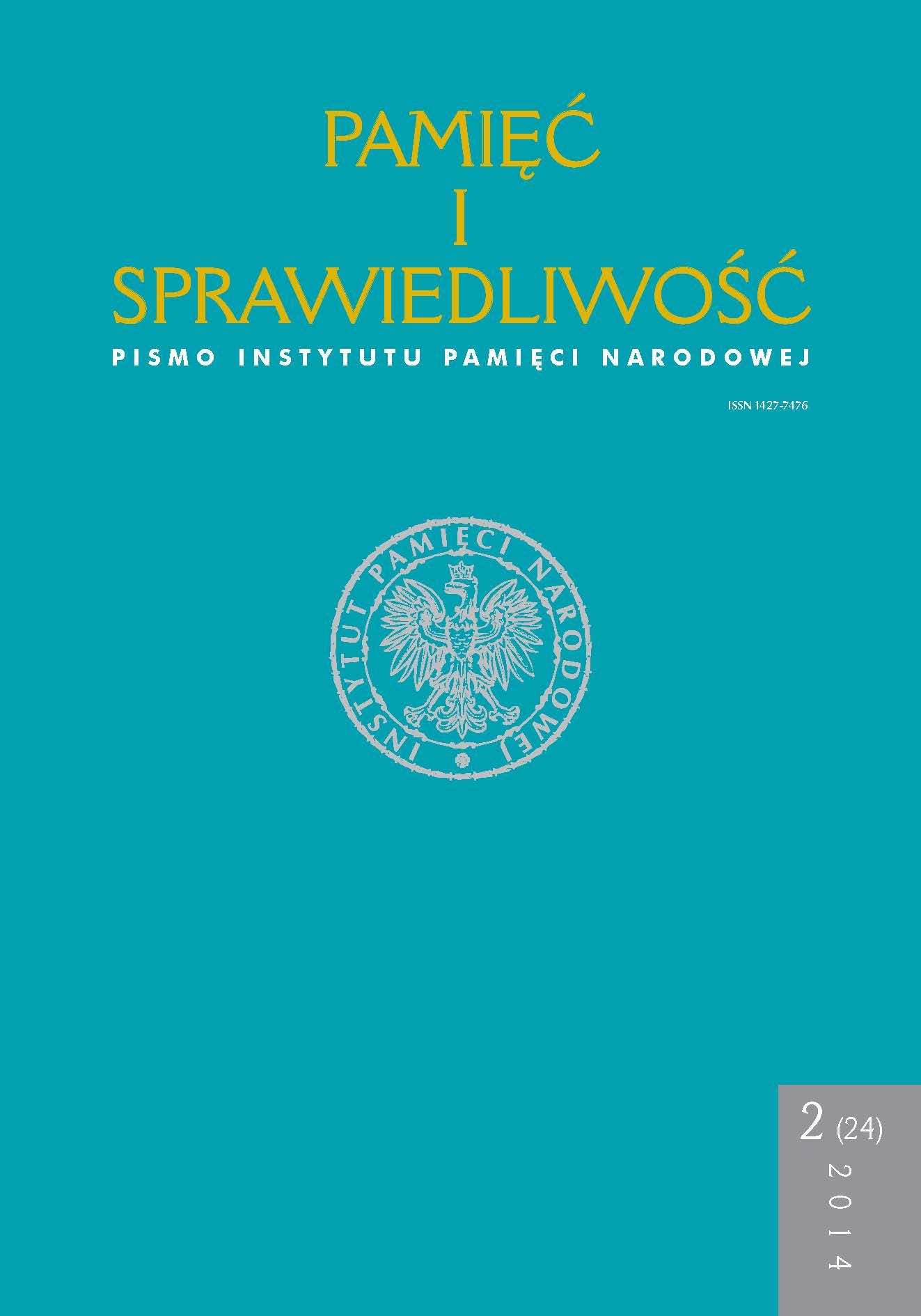Rewolucja „Solidarności” w stolicy polskiej piosenki (1980–1989). Postawy i rola społeczna twórców w czasach przełomu na przykładzie Opola
Pamięć i Sprawiedliwość, Vol. 24 No 2 (2014), pages: 149-189
Publication date: 2014-12-30
Résumé
The revolutionary social and political changes initiated in the summer of 1980, related
to the birth of and activities conducted by the Solidarity movement, took place mainly
because of the social mobilization of workers. The direction and nature of these changes
were also determined – albeit not necessarily in an active manner – by the attitude of other
social structures, particularly the creative circles. Opole, the city regarded since 1963 in
terms of an informal capital of the Polish song – is a good example. The 19th National
Contest of the Polish Song, held from 25 until 28 June 1981, became a legend. The song
“Let Poland be Poland”, performed to the general public at this festival, became an
unofficial anthem of the Solidarity revolution. For political reasons, the festival organizers could
not interfere in the course of the festival. The censorship intervention proved unsuccessful,
as well. The activity of TSA, a rock group set up in Opole, was also a major phenomenon
on a national scale. The group’s songs constituted a certain attempt at escaping from the
greyness and hopelessness of everyday life in communist Poland. Somehow shadowed by
these phenomena were local facts connected with individual attitudes of representatives
of the Opole creative circles towards the revolutionary changes taking place in Poland’s
social and political life. These facts, however, are also significant in the context of
illustrating the social realities of the 1980s. A vast majority of artists from Opole was not actively
engaged in the endeavours of the opposition forces, but – at the same time – they would
neither attack the opposition nor side with the authorities. Cases of active involvement in
the activities undertaken by one or the other side of the political barricade were quite rare.
The longstanding opposition activity of the Opole actor Tadeusz Żyliński calls for special
attention. This man is an example through which one can see quite clearly how much could
be done by politically active artists after August 1980. Unfortunately, only a small part of
the Opole creative circles was interested in such opportunities. Political passivity, coupled
with efforts aimed at fulfilling one’s own personal and professional ambitions, were
definitely more prevailing. Everyday social and political reality of the 1980s in Poland was
a far cry from the idealistic views on the social mission of our intelligentsia.
Articles les plus lus par le même auteur ou la même autrice
- Zbigniew Bereszyński, Kadry prokuratury, sądów i adwokatury w województwie opolskim w początkach stanu wojennego. Weryfikacja polityczna, akty protestu i działania represyjne władz , Pamięć i Sprawiedliwość: Vol. 43 No 1 (2024)
- Zbigniew Bereszyński, Colloquium Opole 2021. Wspólny mit czy źródło sporu politycznego? Dziedzictwo opozycji antykomunistycznej z trójstronnej polsko-czesko-niemieckiej perspektywy, red. Marek Mazurkiewicz, Agata Haas i Robert Wieczorek, Opole 2022, 196 s. , Pamięć i Sprawiedliwość: Vol. 41 No 1 (2023)
- Zbigniew Bereszyński, Akta SB nie kłamią, ale mogą wprowadzić w błąd. Z badań nad dokumentami dotyczącymi osobowych żródeł informacji SB , Pamięć i Sprawiedliwość: Vol. 20 No 2 (2012)
 Język Polski
Język Polski
 English
English
 Deutsch
Deutsch
 Français (France)
Français (France)
 Italiano
Italiano
 Русский
Русский


 PDF (Język Polski)
PDF (Język Polski)
